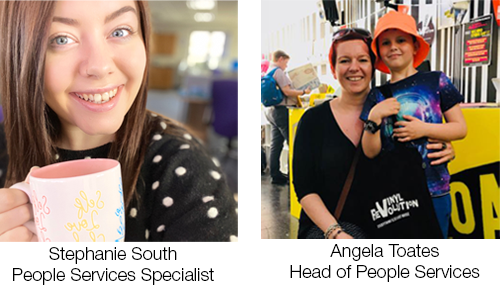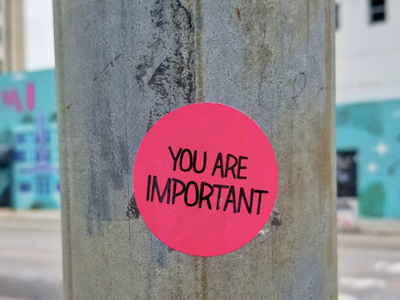The importance of looking after our mental health
As part of Mental Health Awareness Week, we spoke to two of our Mental Health First Aiders (MHFAs), Angela and Steph, about the importance of looking after our mental health both in and out of the workplace.
Here, they share their advice on how individuals and employers can promote mental wellbeing, and how we can support people who are suffering with their mental health.

Why is it important to have mental health first aiders in the workplace?
Angela: Mental health can be a taboo subject and not everyone is comfortable opening up about needing help. MHFAs can offer comfort, support and a confidential ‘safe’ place to talk about issues, until further help is available.
We all have ‘mental health’, just as we have ‘physical health’. As an employer we have a duty of care to look after all aspects of our employees’ wellbeing whilst at work. We take this responsibility seriously, and that is why we have a team of MHFAs in place across Scientifica.
Mental health problems are not as frightening as most people think. When a person has a mental health problem what they need most is someone who can:
- Listen calmly to their feelings and fears
- Give some simple information
- Tell them where to get appropriate help
Steph: Having MHFAs ensures that not only could we save a life by performing emergency physical first aid, but we could also save a life by simply lending an ear, asking the right questions and directing to the correct support for mental illness.

What is the role of a mental health first aider?
Steph: A MHFA is there as a point of contact for an initial conversation and has the resources to guide those in need to support available. They understand key signs and symptoms of mental illness, recognising that even simple changes in their colleague’s ‘usual’ behaviour could mean something more. Prompting that conversation if necessary.
How can managers/businesses promote mental wellbeing of their employees?
Angela: The most effective tool in my view is to talk about it. Be open. The more we talk about mental health, the less taboo it becomes, the more support can be offered. Recognising key events such as, Mental Health Awareness Week and World Mental Health Day reinforce our approach to the wellbeing of our team members.
Sharing experiences, tips and ways in which you look after your own mental wellbeing. For example, we are always talking about diets and exercise routines etc, so let’s give as much airtime to how we look after our mental wellbeing as well.
Always ask ‘how are you?’ and ask twice – check. If you know the person and you’re not convinced the first time they respond with ‘I’m fine’, then take a few moments to gently dig a little deeper.

Do you have any top tips to promote mental wellbeing?
Angela: Know your limits, know what causes you ‘discomfort’ and most importantly know your own coping mechanisms. There is so much advice out there on mindfulness, meditation and other things you can do, but we are all individual at the end of the day. For me, I know that I need to make sure that getting time outdoors every day is a must for my own mental health. I use the twice daily school walk as an opportunity to do that and I get some exercise as a bonus - which boosts the happy hormones! Don’t be afraid to reach out when you are struggling, that is so important.
Steph: My biggest tip is to be open. Be unafraid to talk about mental health and wellbeing. The more we all do this, the more the stigma decreases and the more that happens, the chances of accessible support becoming available improves.
Story sharing is not only a great way to help yourself it is also a way to help others realise that they are not alone, if your story helps just one person, it is worth it.

Any other comments/advice?
Treat your mental health with as much respect as your physical health.
To businesses - When you take care of your employees, the work will take care of itself.
To people – be kind to yourself, be kind to others, the rest will follow.
Please find some useful links relating to this article
Mental Health First Aider courses
https://mhfaengland.org/individuals/adult/
Tips for looking after your mental health
https://www.mentalhealth.org.uk/your-mental-health/looking-after-your-mental-health
Support and advice
Mental health charities, organisations and support groups that can offer expert advice
Grief support for suicide loss survivors
https://save.org/what-we-do/grief-support/
Mental health resources in America

)